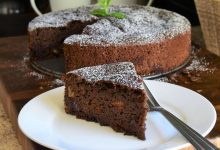Avarakkai Poricha Kootu Recipe (Broad Beans Kootu)
An Authentic Tamil Nadu Side Dish to Pair with Steamed Rice
Avarakkai Poricha Kootu, or Broad Beans Kootu, is a comforting and wholesome dish from Tamil Nadu, renowned for its balance of flavors and textures. The dish combines fresh broad beans (avarekai) with moong dal (yellow split lentils) and is seasoned with a rich coconut masala, offering a deliciously satisfying taste. Traditionally served with steamed rice, rasam, and papad, Avarakkai Poricha Kootu is a perfect addition to any Indian meal. The recipe is both vegetarian and packed with nutrients, making it a healthy side dish.
Ingredients for Avarakkai Poricha Kootu
| Ingredient | Quantity |
|---|---|
| Avarekai (Broad Beans) | 200 grams (chopped) |
| Yellow Moong Dal (Split) | 1/2 cup (cooked) |
| Turmeric Powder (Haldi) | 1/4 teaspoon |
| Fresh Coconut | 1/2 cup (grated) |
| Dry Red Chillies | 4 |
| Cumin Seeds (Jeera) | 1 teaspoon |
| Curry Leaves | A handful (for grinding) |
| Salt | To taste |
| Mustard Seeds | 1/4 teaspoon |
| White Urad Dal (Split) | 1 teaspoon |
| Coconut Oil | 1 teaspoon |
| Curry Leaves (for tempering) | 1 sprig |
Preparation and Cooking Instructions
Step 1: Cook Moong Dal
- In a pressure cooker, add the yellow moong dal, turmeric powder, and salt along with 1 cup of water.
- Close the lid and cook on medium heat for about 4 whistles.
- Once the pressure is released, set the cooked dal aside.
Step 2: Cook Broad Beans (Avarekai)
- In the same pressure cooker, add the chopped broad beans (avarekai) with 1 pinch of salt and 2 tablespoons of water.
- Close the lid and cook for 1 whistle.
- Once done, release the pressure immediately to retain the bright green color of the beans.
Step 3: Prepare the Kootu Masala
- In a mixer grinder, add the grated coconut, cumin seeds, curry leaves, and dry red chillies.
- Grind into a smooth paste, adding a couple of tablespoons of water to assist in blending.
Step 4: Combine the Dal and Broad Beans
- Add the cooked broad beans to the cooked moong dal. Stir well to combine.
- Add the freshly ground kootu masala to the dal and beans mixture. Stir thoroughly to ensure the flavors are well blended.
- Check the salt and adjust to taste.
Step 5: Prepare the Tempering
- In a small pan (tadka pan), heat coconut oil over medium heat.
- Add mustard seeds and white urad dal and let them crackle.
- Once the dal turns light brown and crisp, add the curry leaves and stir for a few seconds.
- Remove from heat.
Step 6: Final Boiling and Serving
- Add the prepared tempering to the dal and broad beans mixture. Stir to combine.
- If needed, adjust the consistency by adding a little water. The kootu should be thicker, but adding water can help if you prefer a slightly more runny texture.
- Bring the mixture to a brisk boil and turn off the heat.
- Transfer the Avarakkai Poricha Kootu to a serving bowl.
Serving Suggestions
Serve your Avarakkai Poricha Kootu with steamed rice, a serving of Thakkali Rasam, Keerai Masiyal, and some papad for a wholesome Indian meal. This dish is ideal for lunch or dinner, providing a nutritious, satisfying, and flavorful accompaniment to your meal.
Recipe Notes
- The dish can be customized by adding more vegetables such as carrots or potatoes for added texture.
- Avarakkai is available fresh in many Indian markets, but frozen broad beans can also be used if fresh ones aren’t available.
- The coconut masala gives the kootu its unique flavor, so make sure to grind it to a smooth consistency for the best taste.
- Adjust the level of spiciness by varying the number of dry red chillies.
Nutritional Information (Per Serving)
| Nutrient | Amount |
|---|---|
| Calories | 180 kcal |
| Protein | 7 g |
| Carbohydrates | 28 g |
| Dietary Fiber | 6 g |
| Fat | 7 g |
| Saturated Fat | 4 g |
| Sodium | 230 mg |
| Potassium | 400 mg |
Avarakkai Poricha Kootu is an ideal dish for vegetarians looking for a delicious, protein-packed side dish that is both light and nourishing. The combination of moong dal and broad beans, tempered with aromatic spices and coconut, offers a rich and flavorful experience that will complement any South Indian meal.



